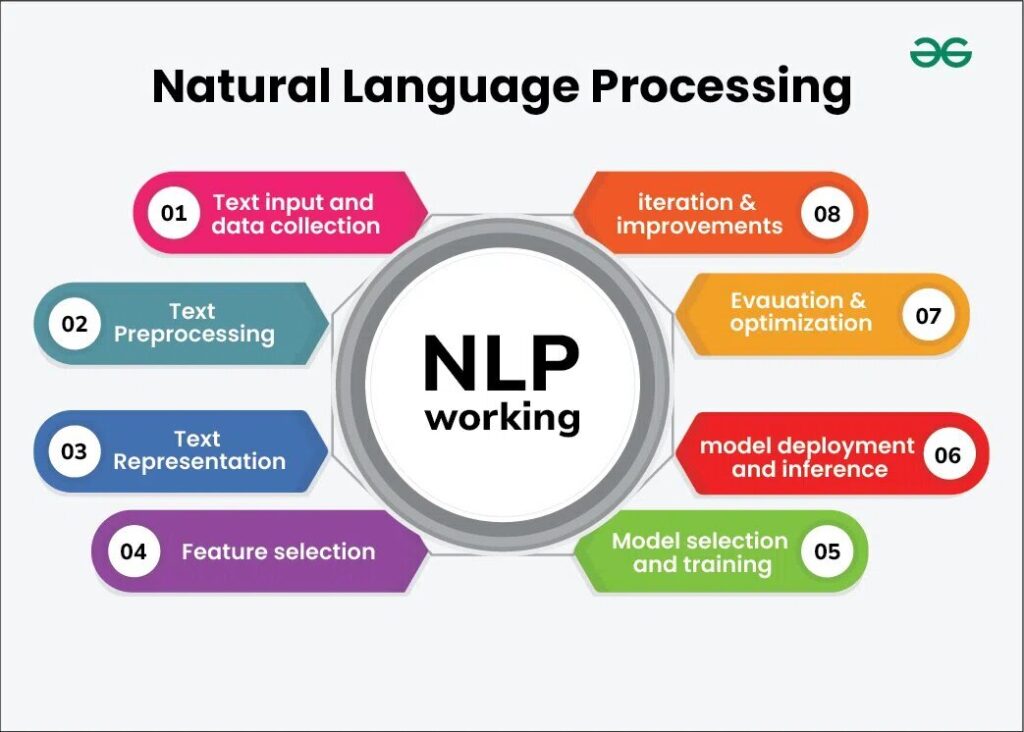Natural Language Processing (NLP) is a rapidly evolving field at the intersection of computer science, artificial intelligence, and linguistics[1][2]. It focuses on enabling computers to understand, interpret, and generate human language in a way that is both meaningful and useful[1][2].
Recent advancements in deep learning have revolutionized NLP, leading to the development of powerful language models and frameworks[1][2]. Some of the most notable include:
BERT (Bidirectional Encoder Representations from Transformers)
BERT, introduced by Google in 2018, uses bidirectional training to better understand context and nuances in language[2]. It has significantly improved performance on various NLP tasks, including question answering and sentiment analysis.
GPT-3 (Generative Pre-trained Transformer 3)
Developed by OpenAI, GPT-3 is a large language model capable of generating human-like text, translating languages, and even writing code[2]. Its impressive capabilities have sparked discussions about the future of AI and its potential impact on various industries.
T5 (Text-to-Text Transfer Transformer)
Google’s T5 model treats every NLP task as a “text-to-text” problem, allowing for a unified approach to multiple language tasks[2]. This versatility makes it particularly useful for multi-task learning and transfer learning in NLP.
RoBERTa (Robustly Optimized BERT Approach)
RoBERTa, developed by Facebook AI, is an optimized version of BERT that achieves state-of-the-art performance on many NLP benchmarks[2]. It demonstrates the potential for further improvements in language models through careful optimization and training strategies.
These models have enabled significant advancements in various NLP applications, including:
- Machine translation
- Text summarization
- Sentiment analysis
- Named entity recognition
- Question answering systems
As NLP continues to evolve, researchers are focusing on addressing challenges such as bias in language models, improving efficiency, and enhancing the interpretability of AI-generated text[1][2]. The field holds immense potential for transforming how we interact with technology and process vast amounts of textual information.
[1]: https://www.deeplearning.ai/resources/natural-language-processing/
[2]: https://builtin.com/data-science/introduction-nlp
Further Reading
1. Natural Language Processing (NLP) [A Complete Guide]
2. An Introduction to Natural Language Processing (NLP) | Built In
3. Natural language processing: an introduction – PMC
4. Natural Language Processing | NNLM
5. Introduction to Natural Language Processing – GeeksforGeeks


